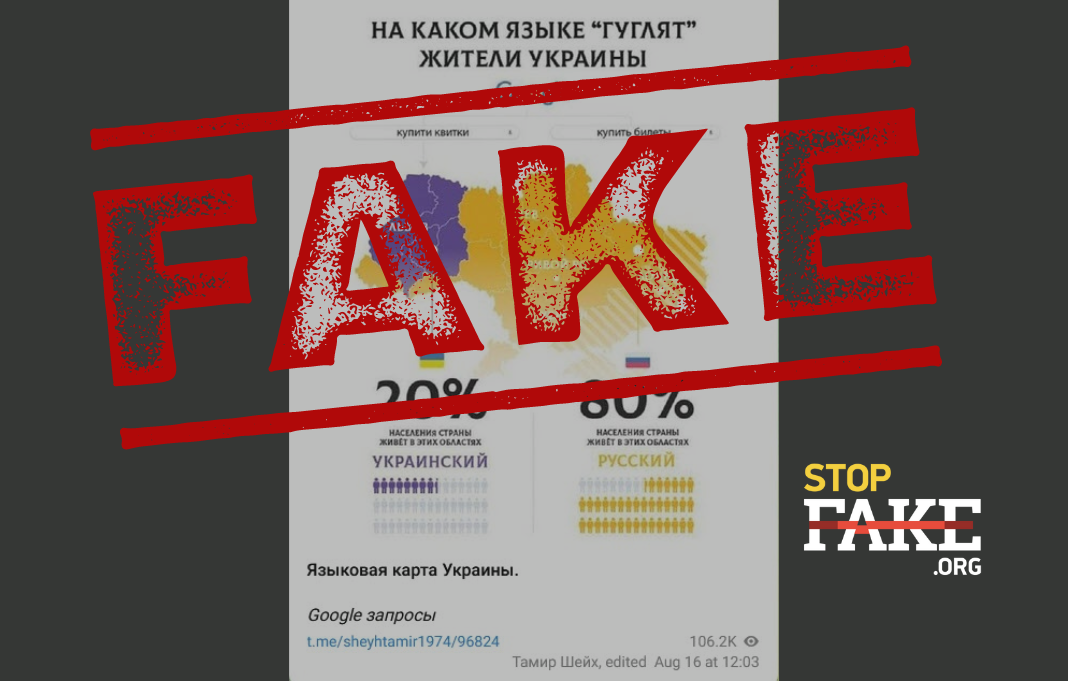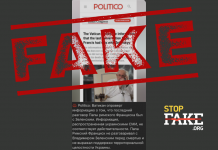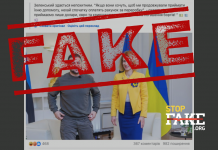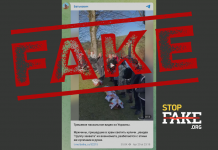Today, the Ukrainian language dominates Google searches in most regions of Ukraine. This is indicated by an analysis of current data from Google Trends. Studies show that since the start of Russia’s full-scale war against Ukraine, Google search queries in Ukrainian have significantly increased and have become the primary language used across almost the entire country. Moreover, it is incorrect to draw conclusions about the popularity of a particular language based solely on one Google search query.
Social media users and Russian websites are spreading information that 80% of Google queries by Ukrainians are supposedly made in Russian. The initiator of this linguistic analysis was the Telegram channel Малевич (Malevich), as reported by the Russian site EurAsia Daily. Users claim that the search query «купить билеты» (buy tickets) is entered in Russian by 80% of Ukrainians, while the same phrase in Ukrainian «купити квитки» is used by only 20% of Ukrainians, primarily those living in the western part of the country. These data are supposedly taken from the open service Google Trends.
«Not Ukrainian, but Surzhyk, Hutsul, Posanian, Boyko, Lemko, and other dialects are spoken in Western Ukraine. The Western dialect, with the addition of Polish words, formed the basis of the state-made Ukrainian language. The Ukrainian language textbook was written in Canada by a descendant of Galician immigrants,» Russian sites write, once again attempting to spread the narrative of the artificiality and unpopularity of the Ukrainian language.
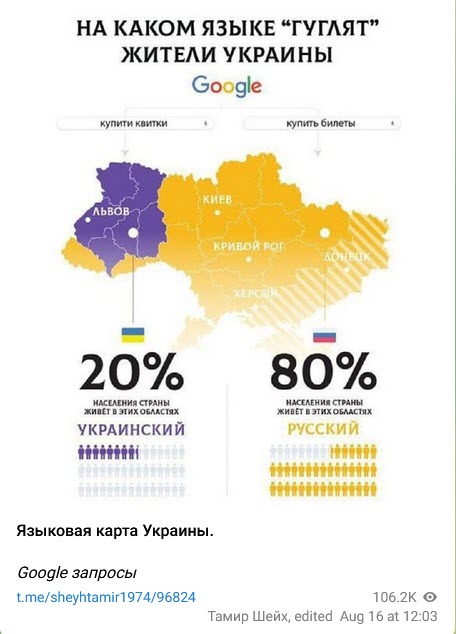
In reality, this information is manipulation. An analysis of the latest data in Google Trends indicates that Google searches in Ukrainian dominate in most regions of Ukraine. Russian language searches prevail in the occupied regions of Ukraine: on the Crimean Peninsula and in the Luhansk region, which are almost entirely within Russia’s information sphere. Moreover, it is incorrect to draw conclusions about the popularity of a particular language in the country based on just one Google search query.
Using Google Trends, StopFake checked whether the information on social media is accurate. For comparison, we took the suggested search queries «купить билеты» in Russian and «купити квитки» in Ukrainian for Ukraine over the past 12 months. The regional distribution does not align with what is claimed on social media and Russian websites. In the entire central, northern, and western parts of Ukraine, Ukrainian language search queries predominate. Only in the Russian-annexed Luhansk region and Crimea were 100% of such queries made in Russian. It should be noted that these Ukrainian regions have been under Russia’s information influence for a long time and therefore rely primarily on Russian-language information sources.
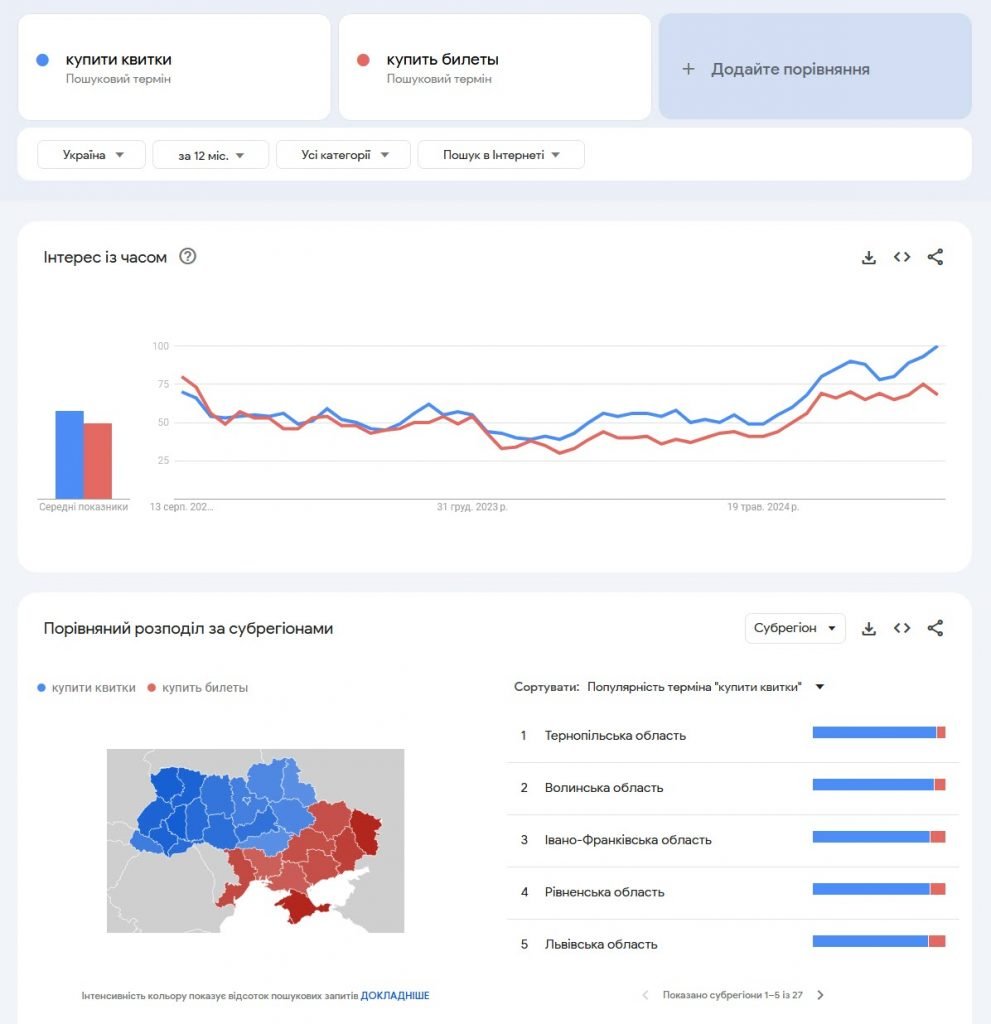
Regarding some regions in the south and east of Ukraine, it is true that search queries in Russian outnumbered those in Ukrainian with a ratio of 70% to 30% or 60% to 40%—but this does not align with the claim that 80% of Google searches by Ukrainians are made in Russian. Additionally, Google Trends reflects the relative popularity of queries in a particular language, not the number of users searching in Russian or Ukrainian.
For a more complete picture, we also compared the usage of search queries «олимпийские игры» («olympic games») in Russian and «олімпійські ігри» in Ukrainian on the territory of Ukraine over the last 30 days using Google Trends. The results were even further from the claims made on social media: queries in Ukrainian were three times more frequent than those in Russian. And only in six out of 25 regions of Ukraine did Russian-language queries predominate, including Crimea and the Luhansk region, which are fully occupied by Russia.
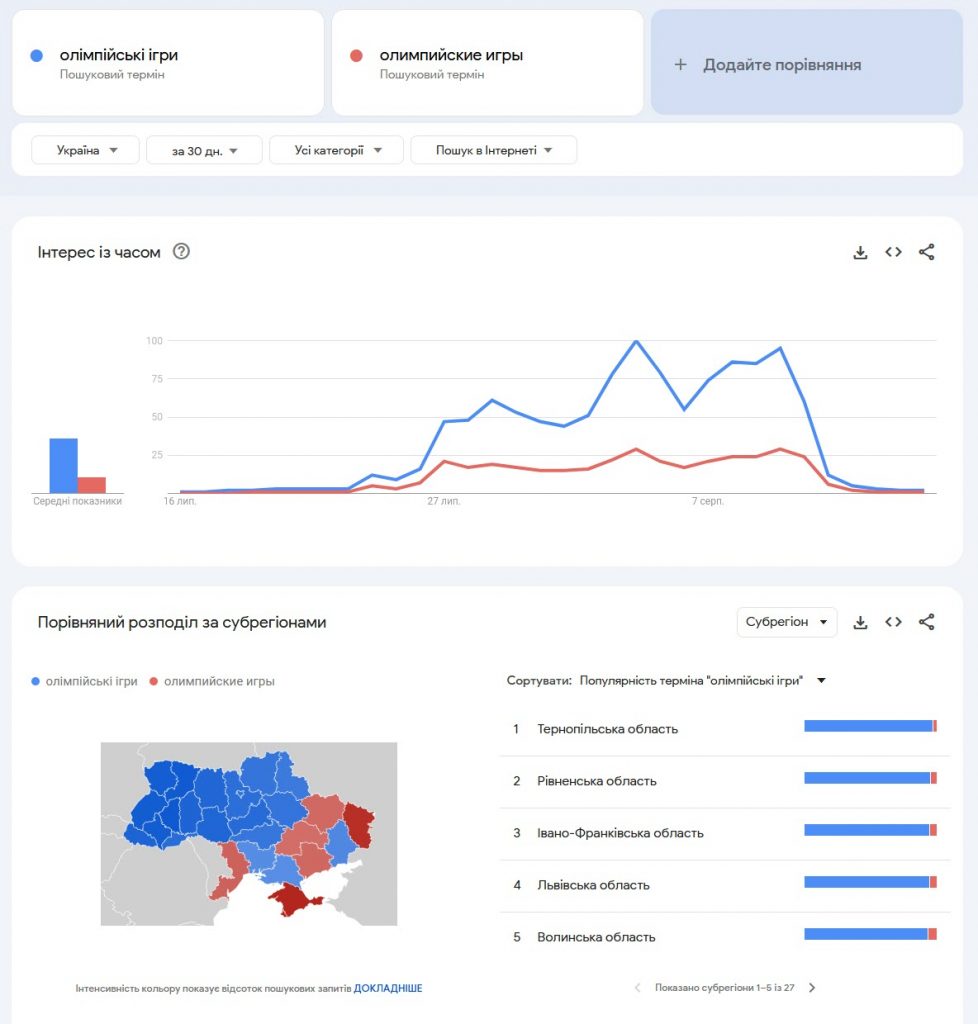
Furthermore, after Russia’s full-scale invasion of Ukraine, the number of Google search queries in Ukrainian began to increase. A 2022 study by Serpstat showed that before the full-scale war, three-quarters of Google queries were in Russian, but after the onset of Russian aggression in Ukraine, the share of Ukrainian-language queries rose to 35% (an increase of 10% from the previous figure). Therefore, the claim that 80% of Ukrainians search in Russian on Google is not supported by any credible source; it only appears on pro-Kremlin websites and social media accounts.
StopFake continues to debunk similar fakes in pieces such as Fake: In Ukraine, «Criminal Responsibility Looms for Speaking Russian Even in the Kitchen» Says Lavrov, Manipulation: The Query «Happy Victory Day» Became the Top Search in Google Trends in Ukraine, and Manipulation: Ukrainian Authorities Start Evacuating Residents of Kursk Region to Ukraine.


